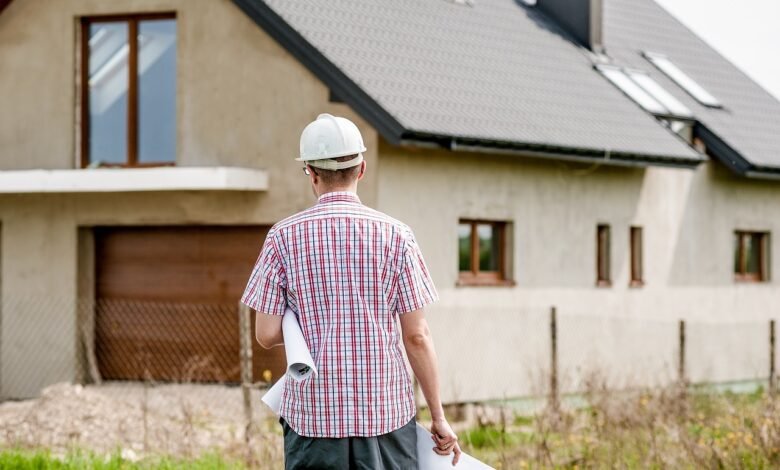
Introduction
Home maintenance plays a crucial role in preserving the value, safety, and functionality of your living space. Regular upkeep ensures that your home stays in optimal condition, preventing costly repairs down the line. Whether it involves fixing minor leaks, servicing appliances, or repainting walls, home maintenance keeps your property looking good and functioning efficiently. In this article, we explore the importance of home maintenance, common tasks involved, and practical tips for homeowners to manage their maintenance needs effectively.
The Importance of Regular Home Maintenance
Neglecting home maintenance can lead to significant issues over time, such as water damage, electrical failures, or structural wear and tear. Routine maintenance not only enhances the aesthetic appeal of your home but also ensures it is safe and comfortable for you and your family. Moreover, well-maintained properties retain their market value, which is especially important if you plan to sell your home in the future. Regular home maintenance saves you from unexpected expenses and the stress of emergency repairs.
Common Types of Home Maintenance Tasks
Maintaining a home involves several tasks, ranging from minor fixes to seasonal projects. Below are some essential areas to focus on for effective home maintenance.
1. Plumbing Maintenance
Checking for leaks, clogged drains, and water pressure issues is essential to prevent water damage. Routine inspections of taps, pipes, and water heaters help identify and fix minor plumbing issues before they escalate into expensive repairs.
2. Electrical System Upkeep
Ensuring the proper functioning of electrical circuits, outlets, and lighting fixtures is crucial for home safety. Regular inspections and repairs minimize the risk of electrical hazards. For complex tasks, hiring a professional electrician is recommended to prevent accidents.
3. HVAC System Servicing
Heating, ventilation, and air conditioning (HVAC) systems require regular servicing to ensure efficient performance. Cleaning or replacing air filters, inspecting ducts, and scheduling annual maintenance checks are vital to keep the system running smoothly.
4. Roof and Gutter Maintenance
Your roof and gutters protect your home from the elements, so inspecting them for damage or blockages is necessary. Cleaning gutters and repairing any loose shingles prevent leaks and water damage during the rainy season.
5. Painting and Wall Repairs
Repainting walls and addressing cracks not only enhance the appearance of your home but also protect surfaces from weathering. Regular paint touch-ups prevent larger structural problems caused by peeling or moisture infiltration.
Seasonal Home Maintenance Checklist
Creating a seasonal checklist helps you stay on top of your home maintenance tasks throughout the year.
- Spring: Inspect roofing, clean gutters, service HVAC systems, and check windows for leaks.
- Summer: Paint fences, trim trees, inspect outdoor lighting, and clean air conditioners.
- Fall: Clean chimneys, prepare heating systems, and inspect insulation for winter.
- Winter: Monitor pipes for freezing, seal window gaps, and clear snow from driveways and roofs.
DIY vs. Professional Home Maintenance
While some tasks like cleaning and minor repairs can be handled by homeowners, others require professional expertise. Understanding when to seek professional help is critical for effective home maintenance. For example, electrical repairs, roof inspections, and HVAC servicing should be performed by certified professionals to ensure safety and quality. Balancing DIY efforts with professional services saves time, ensures proper maintenance, and prevents costly mistakes.
Tips for Efficient Home Maintenance
To manage your home maintenance effectively, follow these practical tips:
- Create a Schedule: Keep a calendar of maintenance tasks based on seasonal needs.
- Set a Budget: Allocate a portion of your monthly expenses for maintenance projects.
- Keep Records: Maintain a record of repairs and services for future reference.
- Inspect Regularly: Perform frequent checks to spot issues early and address them promptly.
- Use Quality Materials: Invest in durable materials and products to reduce repair frequency.
Benefits of Proper Home Maintenance
Maintaining your home regularly offers several benefits:
- Enhanced Comfort: A well-maintained home provides a comfortable living environment by ensuring that essential systems and appliances function smoothly.
- Increased Property Value: Homes that receive regular maintenance hold their value better and attract potential buyers if listed on the market.
- Safety and Security: Regular checks and repairs reduce safety risks such as electrical faults, structural problems, and plumbing leaks.
- Energy Efficiency: Maintaining HVAC systems and sealing windows improve energy efficiency, reducing utility bills.
- Prevention of Major Repairs: Routine maintenance prevents small issues from developing into costly repairs.
Conclusion
Home maintenance is essential for keeping your living space comfortable, safe, and aesthetically pleasing. Whether it’s routine plumbing repairs, HVAC servicing, or roof inspections, staying on top of your home maintenance tasks prevents costly problems and ensures that your property retains its value. While some tasks can be managed independently, professional help is often necessary for more complex jobs. By creating a maintenance schedule and following preventive practices, homeowners can enjoy a well-maintained home that offers comfort, security, and peace of mind.



